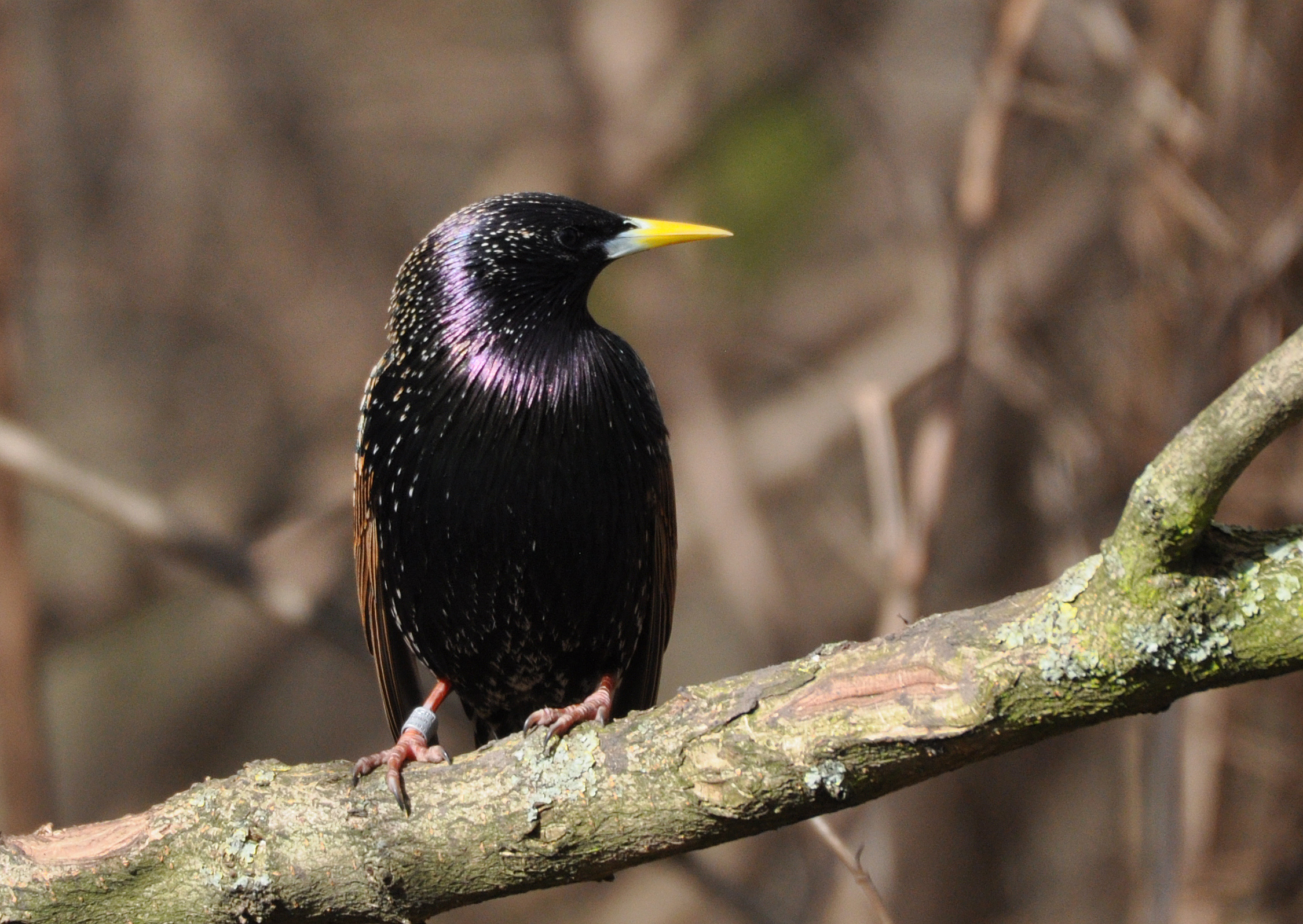Sturnus vulgaris
Habitat
Widespread in the UK and a common garden bird. Huge roosts can be found throughout the countryside and urban areas. Young birds will disperse once they have fledged and form large flocks, roaming fields and woodland. In the autumn, many birds from the northern hemisphere will cross the sea to the UK. Roosts can contain several thousand birds and they will gather in reedbeds, farm buildings and trees.
Food
Starlings have a varied diet and are not picky! They will feed on insects, worms, berries, snails, spiders, fruit, scraps and suet. However, they will only feed their young on invertebrates.
Nesting
The male starlings build the nests from grass in a hole or crevice, then the female will line it with feathers, wool and moss. Both male and female will incubate the eggs and a pair will usually have 4-6 eggs, the chicks will hatch in 12 days. The young will have a more varied diet after 12 days of an invertebrate diet. They will occasionally produce a second clutch if the first is early enough.
Song/Call
‘Churrr’/’Steehh’- The starling will make a short buzzing sound when taking off and a sharp, hoarse sound as an alarm call, often when a predator is in sight.
Beneficial Management
- Allow hedges to flower and set fruit for key feeding habitat. grasslands provide rich insect foraging areas for chick food. Consider supplementary feeding in late winter and early spring.
- Maintain grass field margins or unfertilized grassland for foraging.
- Consider planting areas of hedge and reed to provide roosting spots.
- Retain grazed, permanent pasture where starlings can forage for worms, leather jackets and wireworm which are important food items.
Download and print

